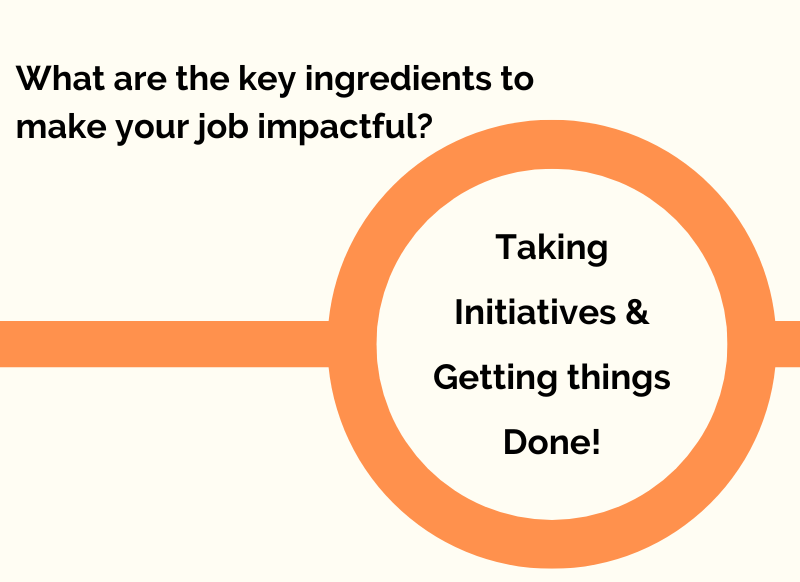You nailed the interviews. Now, it’s time to make a choice.
Congratulations if you are picking between two jobs! All of the hard work from your job search has paid off. But after the parties are over, you’re faced with a severe dilemma. How can you choose wisely when faced with a decision between two startup offers?
It is true that predicting startup success can be tricky, even for experienced investors. There are many factors that can contribute to a startup’s success or failure, and it can be hard to accurately predict which startups will be successful in the long run.
Think Long-term:
It is essential to consider how each job aligns with your long-term career goals when deciding between two job offers. Here are a few questions you may want to ask yourself:
- Does the company have a clear career progression plan?
Will you have the opportunity to advance and take on new responsibilities as you progress in your career? - Does the company have a track record of promoting from within?
Are there opportunities for you to grow and develop within the company? - Is the company in a growing industry or market?
Will the company be able to offer you opportunities for growth as it expands? - Does the company have a strong reputation in the industry?
Will working for the company enhance your reputation and increase your future job prospects?
When deciding between two jobs, think about both from the perspective of your long-term objectives. Choose the job that will help you achieve your goals by taking into account which position has the most potential.
Watch out for “push” factors:
It is important to be aware of “push” factors when considering a job change, as they can influence your decision to leave your current job and may not necessarily be present in your new career. “Push” factors are the aspects of your current job that are causing you to consider a change. It is important to be realistic about whether the new job will address the issues and provide a better work experience. If the new job does not address your “push” factors, you may find yourself facing similar challenges in your new role.
It is essential to carefully consider both the “push” and “pull” factors (positive aspects that are drawing you to a new job) when making a job change. By being aware of both types of factors, you can make a more informed decision about whether a job change is the right decision for you.
By picking the incorrect role, “don’t end up jumping out of the frying pan and into the fire.”
Don’t get blinded by salary:
Which job pays more? Is a simple question to ask while deciding between two positions.
Obviously, pay isn’t the only crucial consideration. Also critical is achieving satisfaction. What transpires if the job you want pays far less than the one you don’t?
Deciding on a salary is a personal decision, and it can be challenging to weigh the factors that go into it. Some people place a higher value on personal satisfaction and may be willing to accept a lower salary in exchange for a job that is personally rewarding or allows them to have a better work-life balance.
Others may prioritize a higher salary and be willing to sacrifice some personal satisfaction to earn more.
Ultimately, the most important thing is finding a job that is personally fulfilling and allows you to balance your work and personal life.
Quote a typical day in each role:
Writing down a typical day in each of the two startups can be a valuable exercise to help you understand the work culture and your day-to-day responsibilities in each position. Here are some things you might consider including in your description:
- Hours:
What are the typical working hours at each startup? Do they offer flexible schedules, or is there a set schedule that you would need to follow? - Work environment:
Is the work environment formal or informal? Is it a collaborative environment, or do employees work more independently? - Responsibilities:
What would your daily tasks and responsibilities be in each position? - Interactions with coworkers and management:
How often would you be interacting with coworkers and management? What is the communication style like at each startup? - Opportunities for growth and development:
Are there opportunities for training or career advancement at each startup?
By writing down a typical day in each startup, you can better understand what it would be like to work at each company and decide which one is a better fit for you.
Embrace your instincts:
While it can be helpful to consider all the available information and weigh the pros and cons of different options, it is also essential to trust your instincts and consider your personal values and goals.
Here are a few things you can consider when choosing between two job offers:
- Consider your values and priorities:
What is most important to you in a job? Is it a high salary, a positive work culture, the opportunity for growth, or something else? - Reflect on your gut feeling:
Take some time to think about your initial reaction to each job offer. Did one offer feel like a better fit for you, or did you have a stronger positive or negative response to one of the positions? - Ask yourself what excites you:
Which job offer feels more exciting or motivating to you? Consider what you would be looking forward to in each position. - Talk to people you trust:
Share the details of each job offer with people you trust and ask for their input. Their perspective can help you gain a better understanding of which opportunity might be the best fit for you.
Ultimately, the most important thing is to choose a job that aligns with your values and goals, and that feels like a good fit for you. Trusting your gut can help you make a decision that feels right for you.




Leave a Reply